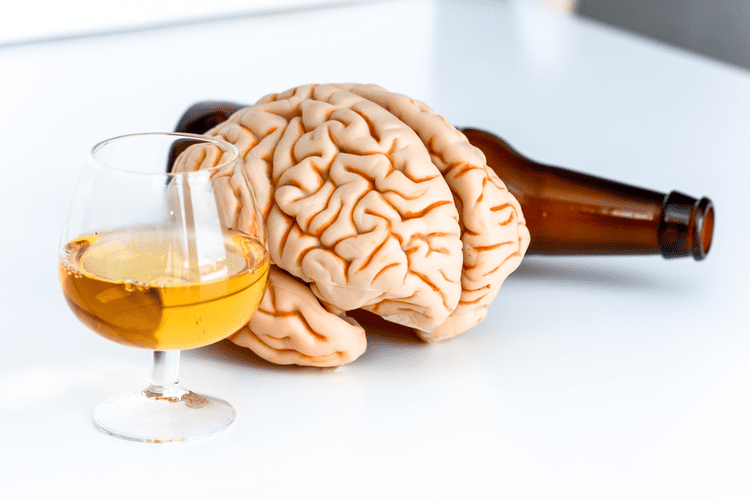Letting go of self-blame allows for a more positive self-perception and fosters resilience. Managing feelings of shame and guilt during addiction recovery is essential for emotional well-being and sustained sobriety. Several approaches can facilitate healing by addressing these complex emotions. Guilt and shame are interlinked emotions that can significantly affect individuals in recovery. Guilt is often felt in response to specific actions that caused harm to oneself or others. It can motivate positive change; however, when guilt is unresolved, it may morph into shame.
This negative self-perception can seriously hinder recovery efforts and trigger feelings that may result in relapse. Understanding this distinction is essential for tailoring therapeutic approaches, enabling individuals to address destructive emotions and encourage personal growth. Guilt and shame are powerful emotions that often surface during addiction recovery. These feelings can emerge as individuals confront the behaviors and actions that have affected both themselves and others.
The Role of Family Therapy in Preventing Relapse
- The interplay between guilt and shame significantly affects self-perception.
- Persistent shame can erode self-esteem, promote feelings of inadequacy, and hinder emotional resilience.
- Negative thoughts can cause a downward spiral, and a person might engage in risk-taking behaviors to cope with these uncomfortable feelings.
- Let us help you overcome your shame or guilt without turning to addictive substances – our professional team is ready to collaborate with you on your journey toward positive progress.
With the help of therapeutic support, personal reflection, and strong relationships, those in recovery can overcome these challenging emotions. It is a journey of courage, self-discovery, and gentle self-compassion that ultimately leads to sustained recovery and empowerment. Surrounding oneself with compassionate friends, family, and professionals can significantly alleviate feelings of guilt and shame. Engaging in group therapy or support groups offers a safe space to share experiences, gain insights, and foster connections. These relationships can help individuals transform guilt into motivating actions and reinforce a path toward healing and self-acceptance. Recovering from addiction involves confronting various emotional challenges, notably the feelings of guilt and regret, which often surface as individuals begin to reflect on guilt and shame in recovery their past behaviors.

The Physical and Psychological Symptoms of Heroin Withdrawal
There’s the biological aspect of drug addiction; then there are social and psychological factors. Some rehab centers help people with the biological aspect of withdrawal but fail to Oxford House address those other factors. Shame is one of the biggest hurdles in rehabilitation centers because it keeps individuals stuck in negative feelings and self-doubt. Instead of focusing on actions, it creates the belief that one is inherently a bad person. Shame levels in an individual often determine how deeply they internalize their mistakes.
How to address shame and guilt in substance abuse treatment
Understanding the distinction between guilt and shame is essential in the recovery process. Guilt pertains to specific behaviors—feeling bad about a particular action like lying or neglecting loved ones. This emotion can motivate individuals to make reparations, apologize, or change their behavior. Guilt that is not processed may push individuals to make amends or seek support, aiding recovery. Conversely, shame often fosters social withdrawal and self-isolation, which can trigger relapse.

This, in turn, may discourage someone from seeking professional help for their addiction struggles. After all, they already feel guilty and shameful enough without the perception of judgment from others. That’s why, once a decision has been made to enter into treatment, it’s so important for a recovery setting to be supportive and nonjudgemental. Only then can the stigma and feelings of guilt and shame be broken down and used for good. When individuals are informed about how guilt, shame, and self-blame relate to addiction, they can develop healthier coping strategies.
How can I help someone cope with guilt and shame in addiction recovery?

Guilt involves remorse about specific actions, such as behaviors committed during active substance use, and can serve as a motivating force for change. When acknowledged properly, guilt encourages individuals to make amends, seek forgiveness, and commit to healthier behaviors, fostering a sense of responsibility and personal growth. Addressing shame and embarrassment in addiction recovery is a vital step towards healing and personal growth. By understanding the intricate roles that guilt and shame play, individuals can begin to dismantle these emotional barriers, encouraging positive change and healthier self-perceptions.
If you’re feeling low, unmotivated or unhappy, take a moment to consider if guilt or shame is underpinning those emotions. Many people develop negative self-perceptions in childhood due to strict parenting, trauma, or experiences that instill feelings of guilt and negative emotions. While guilt can push someone toward healing, shame in recovery can hinder progress, leading to suicide attempts, relapse, and worsening of mental illness.
Impact of traumatic experiences and shame-inducing events
This internalized negative perception can lead to a cycle of self-loathing and avoidance, further complicating recovery. It’s worth noting that accessing additional forms of professional and peer support does not mean that an individual’s existing network isn’t valuable. Rather, these additional sources of assistance add extra layers of safety nets that can improve the odds of success during the addiction recovery process. Mindfulness meditation can also be used as a tool for cultivating positive self-talk, which can help individuals foster a sense of self-esteem and worthiness. Art Therapy for Coping with Shame and Guilt is not just about providing an emotional outlet; it also helps individuals develop skills such as problem-solving, self-reflection, and self-awareness.
Helping someone cope with guilt and shame in addiction recovery involves addressing feelings of unworthiness that often accompany these emotions. Recognizing how these feelings can create a cyclical relationship between shame and addiction is vital. Often, feelings of inadequacy may lead an individual to resort to substance misuse as a way to cope. Individuals must confront these negative beliefs to break free from their grip, which can empower them to cultivate a healthier self-image.
Transforming negative self-perceptions ultimately creates a path toward empowerment, healing, and a fulfilling life in recovery. Being able to properly recognize which emotion needs to be addressed will help https://dev-ahmed-elkhodary.pantheonsite.io/yogi-tip-3-meditation-to-break-addiction/ in effectively tackling the issue head-on, allowing for healing and growth. For example, in recovery, someone may feel a sense of guilt for lying to loved ones or neglecting responsibilities as a result of their addiction. Mindfulness, which is all about being present in the moment, helps you notice your thoughts and feelings without getting overwhelmed by them.